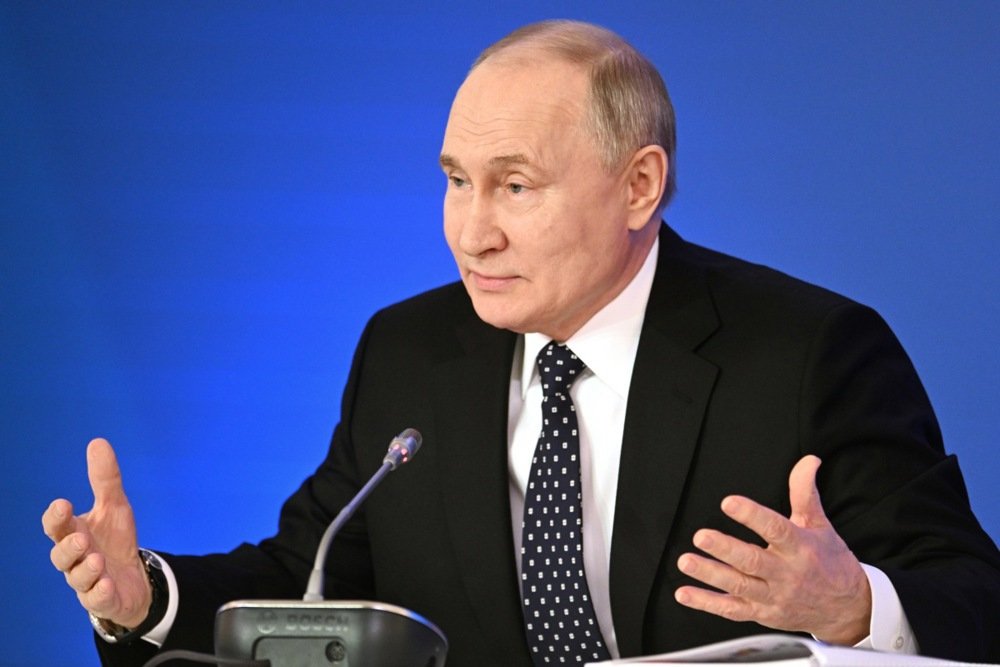
Russian President Putin attends Independent Trade Unions Congress in Moscow. Photo: EPA-EFE/PAVEL BEDNYAKOV/SPUTNIK/KREMLIN POOL
Russian President Vladimir Putin called a barrage of Russian missile and drone strikes on Ukraine’s energy infrastructure on Thursday part of Russia’s strategy to “demilitarise” Ukraine, state news agency TASS reported.
During a meeting with Belarusian leader Alexander Lukashenko in Moscow, Putin said that Russia had been “forced to respond” to recent Ukrainian drone strikes on Russian oil refineries, adding that Russian forces had refrained from targeting Ukraine’s energy infrastructure during the winter for “humanitarian reasons”.
“We didn’t want to leave social institutions, hospitals and so on without energy”, Putin said, adding that Russia’s latest strikes were intended to “influence Ukraine’s military-industrial complex”.
He also reiterated that Russia was open to peace talks with Ukraine, saying that the Kremlin was ready for discussions on “resolving all issues through other means”.
During the meeting in the Kremlin, Lukashenko stressed his “absolute” support for Russia and its “position on the peace process” in its war with Ukraine, accusing Kyiv of refusing to enter into negotiations.
Ukraine’s Air Force said on Thursday that Russia had launched 87 missiles and drones at sites across Ukraine in its latest coordinated attack on the country’s energy infrastructure, with 200,000 people in Kharkiv left without electricity following at least 10 strikes on power stations in the city.
Energy company Centrenergo’s chairman Andriy Hota told the BBC that the Trypilska Power Station, one of Ukraine’s largest and the main energy supplier for Kyiv, had been destroyed in Thursday’s attacks.
